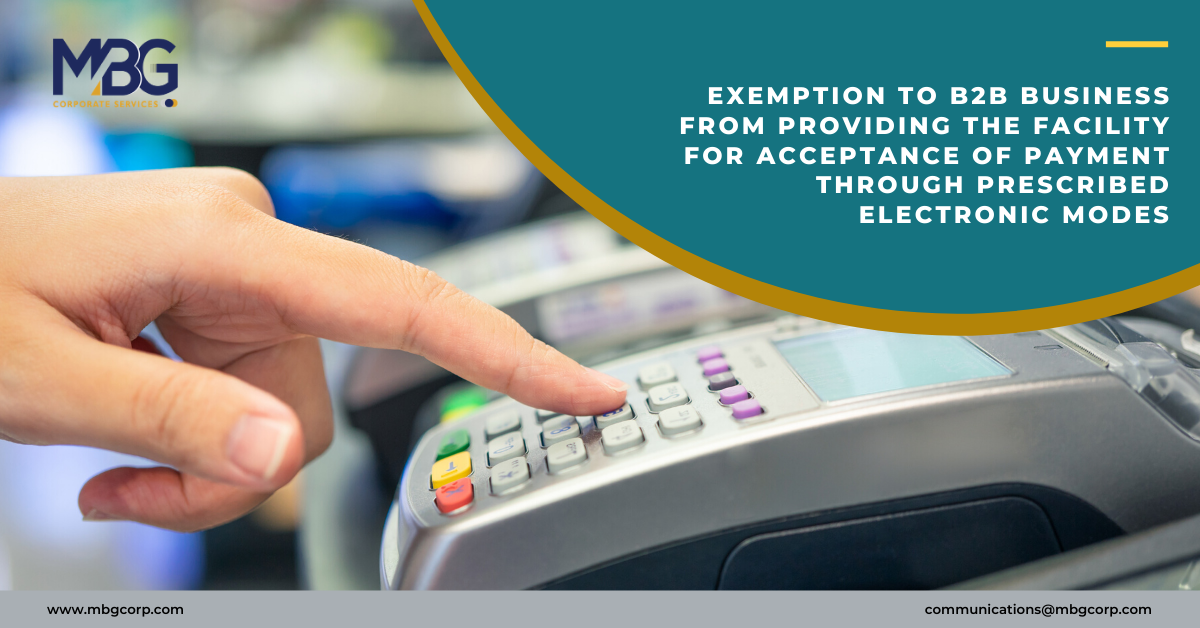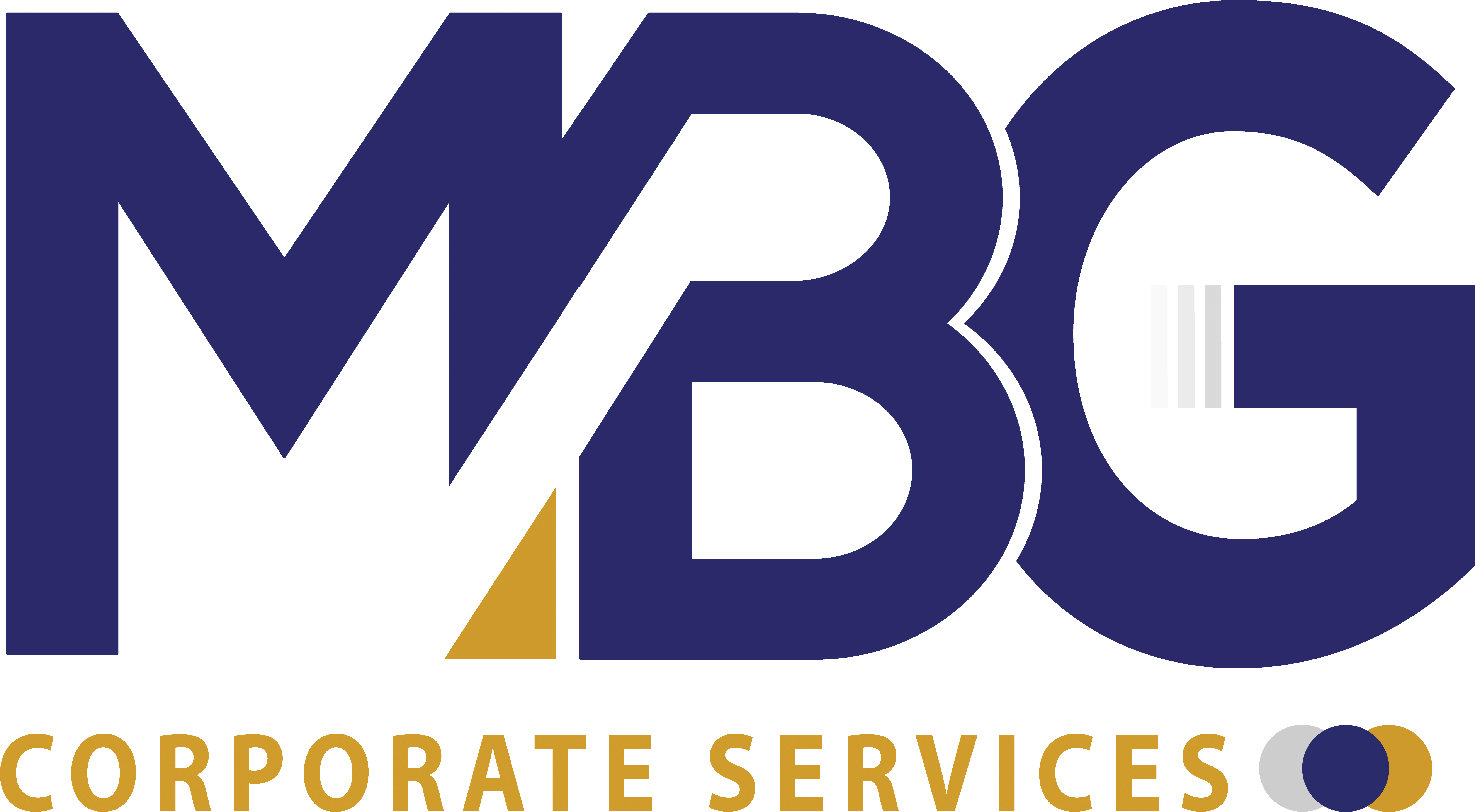Exemption to B2B business from providing facility for prescribed electronic modes of payment

Exemption to B2B business from providing the facility for acceptance of payment through prescribed electronic modes
The Government of India with the intention to promote cashless economy and digital mode of payment introduced Section 269SU of the Income Tax Act, 1961 (ITA) which requires every person having turnover or gross receipts from business exceeding INR 500 million during immediately preceding previous year, to have the facility for accepting payments through prescribed electronic modes such as (i) Debit Card powered by RuPay (ii) Unified Payments Interface (UPI) (BHIM-UPI) (iii) Unified Payments Interface Quick Response Code (UPI QR Code) (BHIM-UPI QR Code), in addition to other electronic modes of payment.
As per Section 271DB of the ITA, any violations to aforesaid is subject to levy of penalty of INR 5,000/- per day.
These prescribed electronic modes are generally applicable in case of Business to Customer (B2C) businesses, due to maximum payment limit per transaction or per day. However, Business to Business (B2B) businesses, which generally receive large payment through other electronic modes of payment such as NEFT or RTGS may face administrative inconvenience and additional costs by accepting payment through the aforementioned prescribed electronic mode of payment.
Considering the legitimate difficulties faced by B2B business, the Central Board of Direct Taxes (CBDT) has issued circular to provide relief in the facility for acceptance of payment through electronic modes. The circular states that the aforesaid provisions shall not be applicable to the following categories:
- A person having no B2C transactions. In other words, businesses having only B2B transactions are exempting to receive payments from aforesaid electronic modes.
- A person having collected at least 95% out of their aggregate receipts during the previous year by any collection mode other than that of cash.
Tag: B2B business


